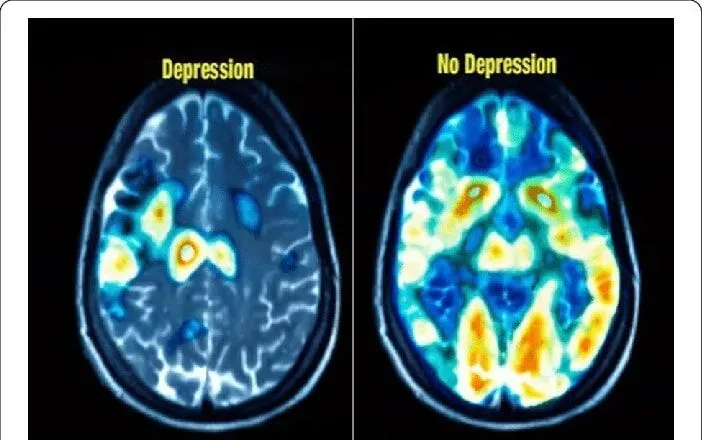Are Depression and Anxiety Related?
Mental health is a broad field that includes a variety of conditions, two of the most common being depression and anxiety. These conditions often occur together, leaving many wondering: "Are depression and anxiety related?" To answer this question, we need to explore the individual characteristics of both depression and anxiety, their causes, and the common links between them.
What Is Depression?
Depression is more than just occasional sadness or a bad mood. It is a persistent condition that interferes with daily life. Some of the most common symptoms of depression include:
- Feeling sad or anxious most of the time
- Loss of interest in previously enjoyable activities
- Irritability, frustration, or restlessness
- Sleep disturbances (insomnia or oversleeping)
- Changes in appetite or eating habits
- Unexplained aches or physical pains
- Difficulty concentrating or making decisions
- Fatigue despite adequate sleep
- Feelings of guilt, worthlessness, or helplessness
- Thoughts of suicide or self-harm
These symptoms vary in intensity and duration but, if they persist, it is essential to seek help from a mental health professional.
What Is Anxiety?
Anxiety, like depression, can significantly affect daily life. While occasional anxiety is normal, anxiety disorders involve frequent, intense, and uncontrollable feelings of fear, worry, or panic. These feelings can be so overwhelming that they interfere with work, relationships, and other aspects of life.
Symptoms of anxiety include:
- Excessive worrying
- Feelings of impending doom or panic
- Rapid heart rate
- Sweating or trembling
- Difficulty concentrating
- Irritability
- Sleep problems
- Avoidance of certain activities or situations
The Link Between Depression and Anxiety
Depression and anxiety often go hand in hand. While they are distinct conditions, it is common for individuals to experience symptoms of both simultaneously. According to research, nearly 50% of people diagnosed with depression also suffer from anxiety disorders. These two conditions can amplify each other, making the overall experience more severe and harder to treat.
Both depression and anxiety can be triggered by similar factors such as:
- Genetic predisposition: A family history of mental health conditions can increase the likelihood of both depression and anxiety.
- Traumatic experiences: Events such as abuse, the death of a loved one, or financial difficulties can lead to the development of either condition.
- Medical conditions: Chronic illnesses, such as cancer or heart disease, can contribute to feelings of both depression and anxiety.
- Substance use: Alcohol or drug abuse can exacerbate both conditions.
How Do Depression and Anxiety Affect Each Other?
When depression and anxiety co-occur, they can intensify each other's effects. For example, someone with depression might experience anxiety about their inability to complete daily tasks, leading to further feelings of worthlessness. Conversely, someone with anxiety might feel depressed due to the constant worry and stress they endure.
It is important to recognize this link, as addressing one condition without acknowledging the other can limit the effectiveness of treatment. Comprehensive care that targets both conditions is essential for recovery.
Smoking, Depression, and Anxiety
Research shows that individuals with depression and anxiety are more likely to smoke cigarettes. Approximately 30% of adults with mental health conditions in the U.S. smoke, compared to about 15% of the general population. However, smoking is not a solution to manage depression or anxiety. While nicotine may temporarily ease symptoms, it can worsen mental health over time.
Quitting smoking has been found to improve mental health, with studies showing that former smokers report reduced anxiety and depressive symptoms after cessation.
Treatment Options for Depression and Anxiety
Fortunately, there are many effective treatments for both depression and anxiety. These include:
Therapy
Psychotherapy, or "talk therapy," is a widely used treatment for both depression and anxiety. It helps individuals:
- Identify and manage stressors
- Change negative thought patterns
- Learn coping mechanisms
- Improve relationships
Types of therapy, such as Cognitive Behavioral Therapy (CBT), are particularly effective for treating anxiety and depression simultaneously.
Medication
Antidepressants, such as SSRIs (Selective Serotonin Reuptake Inhibitors), are commonly prescribed for both conditions. In some cases, medication can provide relief from the intense symptoms of anxiety and depression, making daily functioning more manageable. It’s important to work closely with a healthcare provider to find the right medication and dosage, as results may vary from person to person.
Seeking Help
If you are experiencing symptoms of depression or anxiety, it’s important to talk to a healthcare professional. Treatment can help improve your quality of life, and there is no shame in seeking support.
Depression and anxiety are treatable, and you don't have to face them alone. Whether through therapy, medication, lifestyle changes, or a combination of all three, help is available.
Depression and anxiety are related in many ways. Both conditions share similar symptoms, triggers, and even treatments. When they occur together, they can create a challenging cycle of emotional and physical distress. However, with the right treatment and support, it is possible to manage both conditions effectively and improve one’s overall well-being.



